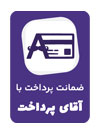Bilingualism, language delay? and maintaining a minority language ResolvedLocked
Question
I am an Arabic speaking mom of a 2 year old. I left my country a year ago (when my son was 1) and moved to Turkey. Because I had to work I had to send my son to a daycare (all the staff was Turkish-speaking) and he spent about nine hours there. My son hasn’t REALLY started to speak in neither language. He is very clever and understands Arabic very well. I asked his teacher at the daycare about his Turkish language comprehension and she said he understands simple commands and reacts accordingly and likes listening to stories and songs. He utters simple words like Mama and ba for bus, bye and bab (door in Arabic). He can also tell what each animal sounds when asked in Arabic and points to animals. He has made up a very funny language himself that no one can understand but with long “sentence-like utterances”. The thing is that I need to move back to my home country while my extended family is staying in Turkey. I really wish him to benefit from learning two languages.
My first question is do you think that his language development is normal since kids of his age start uttering sentences of two and even three words? My second question, would it be a good idea if I try to help him maintain Turkish – I am sure that the language structure is there in his mind since he is in the age of acquiring languages?
Thanks a lot,
Lana
Answer
Dear Lana,
thank you for writing. Your question immediately caught my attention because I also have a toddler son who is learning multiple languages and has invented his own language! Like you, I think my son is very clever!
But to answer your first question, I would like to reassure you that bilingualism does not cause language delay. While your son may have a smaller vocabulary than his peers in a single language, his combined vocabulary in both languages will be about the same for a child his age. It’s important to note that recent research shows that young children practice speaking long before they actually speak! So even though he may not yet be saying the words, doesn’t mean they are not there! You can visit www.talkingpoint.org.uk and check your toddler’s language progress according to his home language to see if he is about where he should be for his age. If after checking his language progress, you are concerned that his language may be delayed, the true cause could be a hearing or language disorder and it would be wise to have him seen by a speech language pathologist who is supportive of bilingualism. However, from what you write, I sense that you are intuitively pleased with his language progress and that it is not a true source of concern at this point.
To answer your second question I agree it would be a shame for him to not continue acquiring his second heritage language, especially because he has already spent a year being immersed in Turkish for significant amounts of time. However, you do not mention how you plan to carry out this plan. I am assuming that because you were working full-time in Turkey that you are also fluent. Do you plan on speaking to your son in Turkish? If so, how will you divide your time between Arabic and Turkish? (It’s important to make a clear distinction between the languages so as to avoid confusion.) Or will you rely on someone else to speak Turkish to him while you continue to speak to him in Arabic? Whatever the case may be, it is a worthy and feasible goal as long as you have a clear plan and are consistent with it. And if I could offer one last piece of advice, it would be wise for you to continue Arabic with him as his home language as it will give him a strong sense of identity, an emotional tie with you and the stronger his home language is, the greater his ability to learn another language.
Please feel free to leave a comment below if you would like to further discuss your Arabic-Turkish bilingual plan for your son. I wish you all the best.

 Persian
Persian  English
English  Arabic
Arabic 


